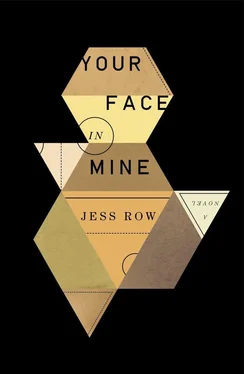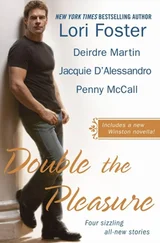No, I’m saying that language is never completely accurate. Ordinary language. I mean, this is just basic stuff. Wittgenstein. Quine. Language is all about its own failure. But heroin , heroin, is more than anyone can ever say it is. It takes promises and raises them up a level.
—
By this time I was, I think, Alan’s closest friend. But not his only friend. And not the only one he told when he started shooting up. It was a secret, but a badly kept one. In a month it was the general word around the hallways at Willow, and some younger kids, sophomores, began asking him to hook them up. He refused. He wouldn’t give it to anyone else, he said, much less sell it, not unless the person was completely and utterly prepared . He got packages from New York, sent to a P.O. box in Mount Washington, just down the hill from his house, and he hid them in the rafters in the garage.
All of which is to say that I could have exposed him, reported him, at any time, and so could any number of others. Cheryl was, all things considered, a wise and understanding mother. She had pictures of herself dancing in the mud at Woodstock hung up over the fireplace in the living room. But Alan’s younger sister, Rebecca, had just spent a month in Sheppard Pratt over the summer; Rebecca was the basket case in the family, fifteen, bulimic, a cutter, who’d been having an illicit relationship with a thirty-five-year-old father of two. Alan was headed to Harvard or Oxford, in her eyes, already all but gone.
Lots of people have maintenance-level habits, he said, and if you hear otherwise that’s just Nancy Reagan propaganda. Look at Patti Smith. Look at Joey Ramone. Look at Wayne Shorter and Jim Carroll. It’s not the healthiest lifestyle, but what is?
Methinks the man protests too much, I said.
Meaning what? Meaning I’m not actually aiming to make it past twenty-five?
Nobody does heroin without a death wish. You all but said so yourself.
Okay, he said, well, let me refer you back to The Myth of Sisyphus , our text for the day. Who doesn’t have a death wish? Freud says it’s as natural as anything else. It’s never felt anything other than natural to me. And yes, you can say, that’s just garden-variety teenage angst. Guess what? Rimbaud quit writing poetry when he was nineteen. Keats was dead by twenty-five.
We were raking leaves down the slope of his front lawn, piling them up in a neat barrow at the curb; Cheryl had promised him a theremin if he did all the yardwork that fall. He’d insisted on wearing a pair of oversized leather gloves, claiming he was afraid of getting blisters, and his wrists, jutting out of a flannel shirt, seemed hardly more than bleached bones.
Alan, I said, trying to keep my voice as neutral, as level, as I could, are you listening to yourself? I wish I had a tape recorder. You’re becoming a caricature, do you know that?
And you’re not, Savonarola?
Forgive me for giving a shit.
Oh, I do, he said. But not for being so transparently jealous .
I was jealous of you for getting an A in AP English, I wanted to say. I was jealous when you were fucking Ayala. I was jealous when you were L’Arc-en-Ciel’s frontman, giving all the interviews. Do you know all the times I’ve been jealous? It sounded so petty, and so rote, so high school . You’re not a genius, I wanted to say, and this isn’t your time, or your stage, or your historical moment , you’re just an embryo, if that, suckling on a nutrient-rich diet of hundred-year-old ideas. Is that what I wanted to say, or what I would say now? In any case, I put down my rake, and walked farther down the hill to where my car was parked, and drove away.
—
It seemed to me in those purgatorial months between Halloween, when the first of our applications were sent, and April 15, that the hierarchy of our world disintegrated: parents and teachers losing their grip, and then, more disturbingly, losing interest. Like teenagers, they kept to their own rooms and avoided our gaze. You could say some part of it was relief, some part a kind of gallows nonchalance: they had handed us over to another tribunal, and, for the first time, felt that they had been instructed to withhold judgment. My own parents, who had been minimalists in the kitchen as long as I’d known them, took up an interest in northern Italian cooking, and began filling the basement with cases of Barolos, Brunellos, Sangioveses. Between dinner and the end of whatever they were watching in the den— Masterpiece Theatre, Frontline, NOVA —they finished a bottle a night, sometimes two. I was playing drums for two new and short-lived bands, The Near Misses and The Wash, and was out more nights than I was home; I might come in at ten and find the dinner dishes still on the table, the candles melted to nubs, and the two of them, my guardians, my progenitors, asleep on the couch in their work clothes, their slippered feet poking out of a plaid blanket. I was never sure whether to wake them or not. I was never sure whether to envy them or pity them. In one way, at least, I had seen the last of them, and I was, for better or worse, alone.
—
We avoided each other for more than a month, until Cheryl called me to ask why he wasn’t filling out any college applications. I think you should ask him, I said, and she began to cry, over the phone, a sound like the plashing of a waterfall, so loud I held the receiver away from my ear. You’re his rock, she said, you’re his conscience. He brushes me away like a fly.
Look, I said, I have no power over him. You want me to talk to him? I’ll talk to him. But it won’t make any difference. He’s got bigger problems.
Bigger problems than not going to college?
I stared at the touchpad, at its recessed buttons, at its strange and awkward division of the alphabet, and tried to recall the last time that one of our parents — anyone’s parents, that is, even Ayala’s dad, beloved Rabbi Kauffmann — had tried to exert, to possess, moral authority. All our independence, it seemed to me, had been a smoke screen, a shadow play, and they had bought it, they had inhaled it. We had been granted the status of superior beings.
I can’t help it if you’re blind, I wanted to tell her, but instead, I said, look, Cheryl, I think you need to draw a line with him. Stop giving him money.
What the hell are you talking about?
It was unbearable, it is unbearable, a thousand times more so, in retrospect, that I didn’t answer her question. Instead, I got off the phone, making some excuse, another three weeks passed, Christmas and New Year’s passed — skiing in Lake Placid, a strange last-minute inspiration of my father’s, though I sprained my ankle and spent most of the week in the hot tub reading Jude the Obscure —and when I returned our answering machine tape was shredded from overuse, and Alan had already spent two nights in the ER, two nights in intensive care, and was on suicide watch at Sheppard Pratt. Rebecca found him, I was told, or else he wouldn’t be alive; she knew immediately it was an overdose, though he’d hidden the syringe, thrown the works out the window, and she said so to the dispatcher. By then, in the space of those weeks, his future had disappeared; the question was his survival.
—
How else can I say it, other than to say it? That he remade me in his own image. Or that he wanted to, and succeeded, for a while: there was a version of me that was Alan, a provisional, experimental second self, that knew all his jokes, all his stock phrases, anecdotes, and allusions. I could have been his Charles Kinbote.
Or is it nothing more than a dodge, a kind of metaphysical excuse, to say that I failed him because I was him? Instead of saying that I failed him by taking my life away and moving on. For the last year of his life, from the time he entered rehab to the day he died, I became terrible at paying attention to him. My own trajectory, I suppose, was too absolute for that. I was admitted early to Amherst, my first choice; I won a merit scholarship that, in the end, as my father never tires of reminding me, paid for half of one semester; I gave up playing the drums and started reading and writing poetry every free moment, fascinated by James Merrill and John Ashbery, Frank O’Hara and Kenneth Koch. How’s Alan? people asked me, constantly, and that was all that reminded me that he was still alive. You could say that I wrote elegies for him starting in the winter of 1992, that he became useful to me before he actually died.
Читать дальше












